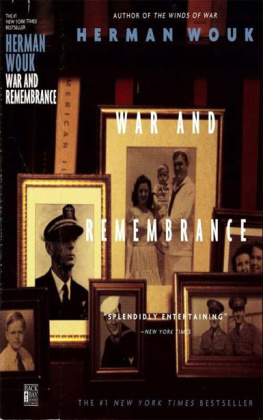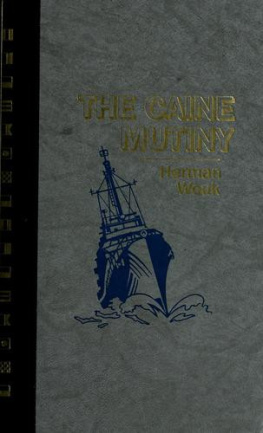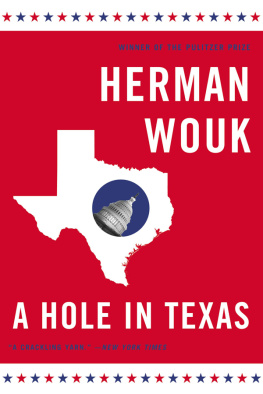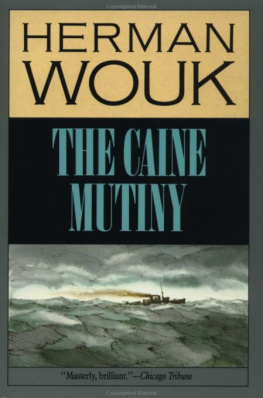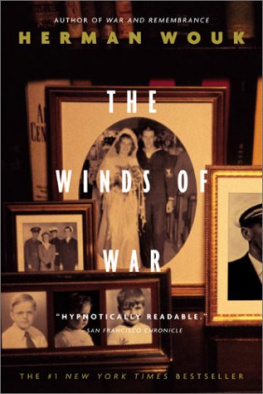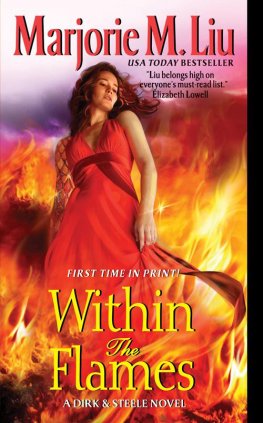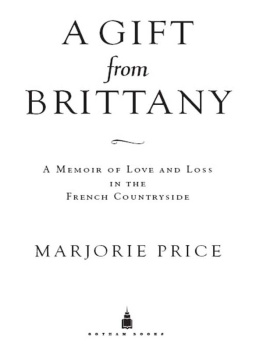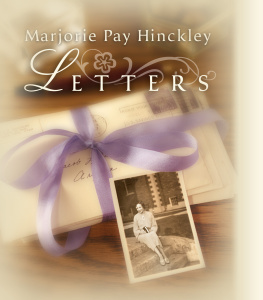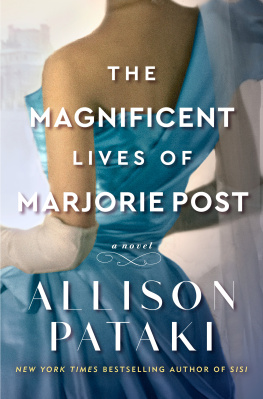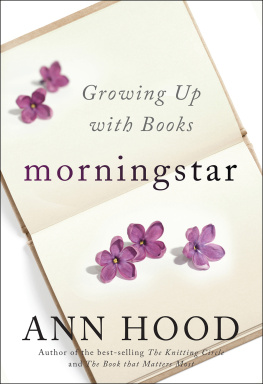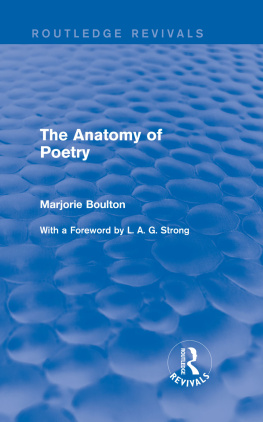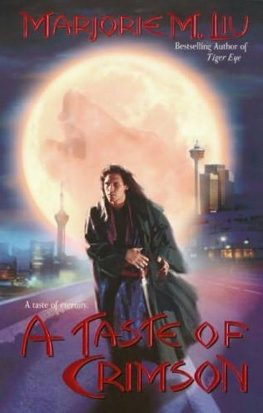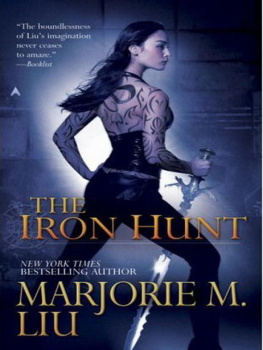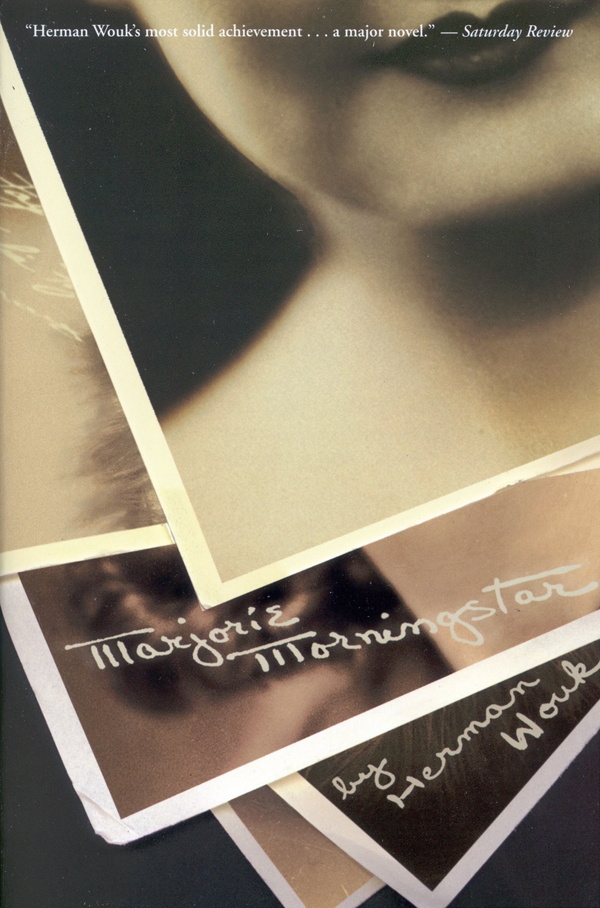In accordance with the U.S. Copyright Act of 1976, the scanning, uploading, and electronic sharing of any part of this book without the permission of the publisher constitute unlawful piracy and theft of the authors intellectual property. If you would like to use material from the book (other than for review purposes), prior written permission must be obtained by contacting the publisher at permissions@hbgusa.com. Thank you for your support of the authors rights.
Thank you for buying this e-book, published by Hachette Digital.
To receive special offers, bonus content, and news about our latest e-books and apps, sign up for our newsletter.
Sign Up
Or visit us at hachettebookgroup.com/newsletters
The characters and events in this book are fictitious. Any similarity to real persons, living or dead, is coincidental and not intended by the author.
Copyright 1955 by Herman Wouk
Copyright renewed 1983 by Herman Wouk
Cover design by Chika Azuma
Cover copyright 2013 by Hachette Book Group, Inc.
All rights reserved. In accordance with the U.S. Copyright Act of 1976, the scanning, uploading, and electronic sharing of any part of this book without the permission of the publisher constitute unlawful piracy and theft of the authors intellectual property. If you would like to use material from the book (other than for review purposes), prior written permission must be obtained by contacting the publisher at permissions@hbgusa.com. Thank you for your support of the authors rights.
Little, Brown and Company
Hachette Book Group
237 Park Avenue, New York, NY 10017
littlebrown.com
twitter.com/littlebrown
First e-book edition: January 2013
NOTE:
Fictional liberties have been taken with place names, weather, eclipses, steamship schedules, dates, and so forth. All the characters of the novel, with their names and traits, are complete fictional inventions. Unintentional duplication of actual names of people or business organizations may have occurred. But any resemblance to actual people or events, in names, traits, or physical descriptions, is coincidental. Real names of hotels, apartment houses, restaurants, ships, and business organizations have occasionally been used where invented names would have sounded forced, but beyond that, the characters and events in those places are fictitious.
The Hachette Speakers Bureau provides a wide range of authors for speaking events. To find out more, go to hachettespeakersbureau.com or call (866) 376-6591.
ISBN 978-0-316-24854-9
Novels
Aurora Dawn (1947)
City Boy (1948)
The Caine Mutiny (1951)
Marjorie Morningstar (1955)
Youngblood Hawke (1962)
Dont Stop the Carnival (1965)
The Winds of War (1971)
War and Remembrance (1978)
Inside, Outside (1985)
The Hope (1993)
The Glory (1994)
A Hole in Texas (2004)
Plays
The Traitor (1949)
The Caine Mutiny Court-Martial (1953)
Natures Way (1957)
Nonfiction
This Is My God (1959, revised 1988)
The Will to Live On (2000)
The Language God Talks (2010)
TO THE MEMORY OF MY FATHER, ABRAHAM ISAAC WOUK, 18891942
Customs of courtship vary greatly in different times and places, but the way the thing happens to be done here and now always seems the only natural way to do it.
Marjories mother looked in on her sleeping daughter at half past ten of a Sunday morning with feelings of puzzlement and dread. She disapproved of everything she saw. She disapproved of the expensive black silk evening dress crumpled on a chair, the pink frothy underwear thrown on top of the dress, the stockings like dead snakes on the floor, the brown wilting gardenias on the desk. Above all she disapproved of the beautiful seventeen-year-old girl lying happily asleep on a costly oversize bed in a square of golden sunlight, her hair a disordered brown mass of curls, her red mouth streaked with cracking purplish paint, her breathing peaceful and regular through her fine little nose. Marjorie was recovering from a college dance. She looked sweetly innocent asleep; but her mother feared that this picture was deceptive, remembering drunken male laughter in the foyer at 3 A.M., and subdued girlish giggles, and tiptoeing noises past her bedroom. Marjories mother did not get much sleep when her daughter went to a college dance. But she had no thought of trying to stop her; it was the way boys met girls nowadays. College dances had formed no part of the courtship manners of her own girlhood, but she tried to move with the times. She sighed, took the dying flowers to try to preserve them in the refrigerator, and went out, softly closing the door.
The slight noise woke Marjorie. She opened large blue-gray eyes, rolled her head to glance at the window, then sat up eagerly. The day was brilliantly clear and fine. She jumped from the bed in her white nightgown, and ran to the window and looked out.
It was one of the many charms of the El Dorado that it faced Central Park. Here on the seventeenth floor there was no one to peer in on her nakedness but the birds of the air. This fact, even more than the spacious view of the green park and the skyscrapers, gave Marjorie a sense of luxury each day when she awoke. She had enjoyed this freedom from prying eyes for less than a year. Marjorie loved everything about the El Dorado, even the name. El Dorado was perfectly suited to an apartment building on Central Park West. It had a fine foreign sound to it. There were two categories of foreignness in Marjories outlook: high foreign, like French restaurants, British riding clothes, and the name El Dorado; and low foreign, like her parents. By moving to the El Dorado on Central Park West her parents had done much, Marjorie believed, to make up for their immigrant origin. She was grateful to them for this, and proud of them.
What a wonderful day it was for horseback riding! The warm breeze smelled of new grass, here seventeen floors above the murmuring auto traffic. The sky was bright blue, with little white tufts of cloud, and the green park was tufted with white too where cherry trees were blossoming. She felt unbelievably good as recollections of last night came back to her. She hugged herself with pleasure, crossing her arms and clutching her bare pretty shoulders with her hands.
Her dreams of the gawky days of thirteen and fourteen had come true, and more than true. Four years ago she had scampered and squealed with other skinny dirty little girls in the playgrounds of Bronx public schools. Last night she had walked on the moonlit grounds of Columbia College. She had faintly heard the young men who lived in the dormitories shouting and laughing, a wonderful rich male noise. She had danced in a wood-panelled hall decorated with colored lanterns and great blue flags, and sometimes she had been only inches away from the smiling band leader, a famous man. She had danced with dozens of boys. Even when the band was resting a victrola had played, and there had been more boys to dance with her to the thin scratchy music. One of them, the son of the owner of a great department store, was going to ride with her today in Central Park.
She picked the black dress off the chair and smoothed it gratefully. It had done its work well. Other girls had floundered through the dance in wretched tulles and flounces and taffetas, like the dresses her mother had tried for two weeks to buy for the great occasion. But she had fought for this tube of curving black crepe silk, high-necked enough to seem demure, and had won; and she had captivated the son of a millionaire. That was how much her mother knew about clothes.


